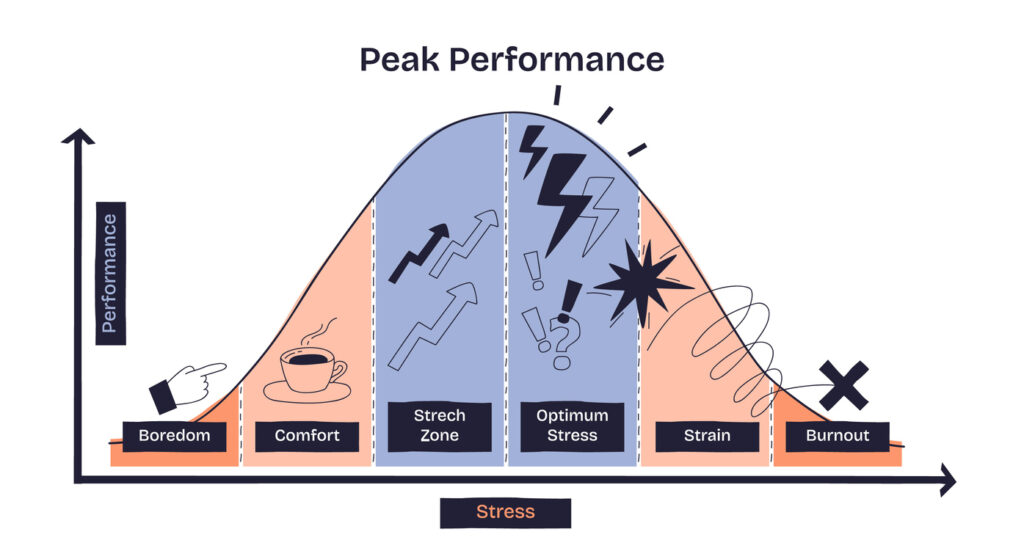When Drive Becomes Drain: How to Recognize and Recover from Overtraining
There is a fine line between pushing limits and crossing them.
This guide helps you understand the hidden signs of overtraining, what your body is trying to tell you, and how to rebuild the foundation for sustainable peak performance.

When drive Becomes Drain: How to Recognize and Recover from Overtraining
In high-performance sports, we love the grind.
We chase numbers, data, and structure, and we take pride in discipline. But sometimes, the body stops cooperating. Energy diminishes, recovery slows down, motivation vanishes, and sleep begins to break down.
The mind says push harder. The ego whispers don’t stop. But that voice — the one dressed as toughness — isn’t strength. It’s a warning signal you’re ignoring.
That’s not weakness, it’s your body giving you feedback. What you are feeling might not be simple fatigue. It might be systemic overload, when your physiology, hormones, and mindset lose alignment.
Your Ego is not your Amigo!
Kathrin Fuhrer – Level up Life
It’s a lesson I’ve learned over more than 20 years in elite sport. The ego pushes when the body whispers pause. It tells you that rest is weakness, that more is always better. But the truth is, performance isn’t built by constant grind — it’s built in the space between effort and recovery.
Learning to listen instead of forcing is where real performance can begin.
What Training Really Does Inside Your Body
Every training session acts as a form of controlled stress. When you work out—whether it’s intervals on the bike, a tough run, or strength training, you temporarily disturb your body’s balance, known as homeostasis. Muscles undergo a slight breakdown, energy reserves decrease, hormones like cortisol and adrenaline increase, and your nervous system accelerates.
That’s good, stress drives adaptation. The key is recovery. Supercompensation — the process of rebuilding stronger — only happens if your body has enough fuel, sleep, and rest. Push before it’s ready, and you slip from adaptation into fatigue.
The HPA axis is your brain’s link to your adrenal glands; it regulates stress hormones, metabolism, and sleep-wake rhythm.
A well-trained athlete has a sharp stress–recovery response: fast activation, fast recovery.
When training load, poor sleep, or under-fueling push the system too far, that rhythm breaks.
What overtraining really means
When you train too much, sleep too little, have no resting periods, or fuel poorly, the HPA axis dulls. Cortisol and ACTH stop rising properly when needed. You feel wired but tired, restless at night, flat during the day.
That’s not weakness — it’s a central stress dysregulation. Your brain and body are out of sync. Overtraining syndrome is when hormones, mood, and performance all fall out of alignment.
Cumulative Stress and Athlete Recovery
Training isn’t your only stress.
Work deadlines, travel, emotional load, family duties, under-fueling — your body doesn’t distinguish between a hard session and a hard day. It processes both through the same biological stress pathways.
Even with moderate training hours, your total system load may exceed your recovery capacity.
Stress is cumulative, not linear.
Performance isn’t just about how hard you train; it’s about how well your body and mind can handle that training in balance with your daily life. Balance the work you do with how you recover, fuel, and live.
What’s Going on Inside Your Body
Overtraining isn’t just muscular fatigue — it’s a full-body imbalance affecting mood, focus, and resilience.
Long-term overtraining affects nearly every system:
- Hormones: Flattened cortisol rhythm, low DHEA, and reduced thyroid function.
- Immune System: Slower recovery, frequent colds, nagging injuries
- Mitochondria: Energy production drops, fatigue rises.
- Gut Health: Chronic inflammation, bloating, and poor nutrient absorption.
- Liver: Slower detox and metabolism.
Overtraining isn’t just about tired muscles — it’s a systemic imbalance affecting mood, focus, recovery, and resilience.
The Inverted-U of Performance

Sports science indicates that peak performance follows an inverted U-curve.
- Insufficient training leads to no progress.
- Moderate training leads to the best adaptation.
- Excessive training leads to breakdown and fatigue.
The magic happens in the middle — where stress and recovery balance each other.
That’s where growth happens.
The Mental Load: Why the Brain Burns Out First
Overtraining usually starts in the mind.
Athletes often mistake willpower for strength, pushing through exhaustion when the body’s asking for rest.
Every time you override fatigue, you borrow energy from tomorrow. Mental stress activates the same biological pathways as physical stress. That’s why even a tough work week can crush your recovery metrics.
Warning Signs You Shouldn’t Overlook
The earliest signs are usually subtle — changes in energy, sleep, and mood before performance metrics drop.
- Waking up early (4–5 am) or experiencing restless sleep.
- Elevated resting heart rate / low HRV
- Persistent fatigue or loss of motivation
- Cravings for sugar, salt, or caffeine
- Recurrent illness or injury
- Low mood, irritability, and anxiety
- Decreased strength or endurance despite training.
If several of these feel familiar, it’s time to pull back — your body isn’t failing, it’s communicating.
How to Evaluate Overtraining
There’s no single “blood test” for overtraining in athletes. It’s all about context.
Top-level athletes pair objective data (HR, HRV, power output, nutrient intake) with subjective feedback (mood, motivation, sleep).
True readiness is revealed in your energy patterns — how you wake up, how you recover, and how long it takes to find focus again, that’s wehere you spot the real imbalance before it hits your taining logs.
As your coach, I help my athletes look beyond raw numbers. Sure, power and pace tell part of the story, but the early warning signals often live in your energy patterns. How you wake up, how you feel two hours after your session, how your RHR/HRV shifts, and how early you lose focus during drills. That’s the physiological truth of your readiness.
Rebuilding Guide
1. Cut Down on Training Load
- Cut intensity by 30–50%.
- Focus on low-heart-rate sessions, walking, or mobility.
- Replace competition with connection — train for feel, not numbers.
2. Make Sleep a Priority
- Aim for 8 to 9 hours per night
- Keep the room dark, cool, and screen-free 60 min before bed.
- Morning sunlight resets your cortisol rhythm
3. Fuel Recovery
Caloric deficits raise cortisol and disrupt hormonal balance.
Eat sufficient carbohydrates around training to stabilize stress hormones and support recovery.
- Never train fasted when energy is low.
- Add slow-digesting carbs at dinner to calm your nervous system
- Supplement wisely: Magnesium, Zinc, Omega-3s, and Adaptogens.
- Hydrate with electrolytes — not just plain water.
4. Reset the Nervous System
Recovery isn’t passive — it’s a skill.
Use breathwork, yoga, nature walks, journaling, and digital detox to restore your parasympathetic balance. Schedule unstructured time—proper recovery is restoration.
5. Rebuild Gradually
Start small. Focus on rhythm, consistency, and progression — not perfection. Patience is the foundation of your comeback.
6. Periodize Training Stress
Alternate high- and low-load phases to maintain endocrine flexibility and prevent overtraining syndrome (OTS). Smart periodization keeps adaptation alive.
7. Monitor Recovery Data
Early red flags appear before lab results do.
- Track morning resting HR and HRV.
- Record mood, fatigue, and motivation daily.
- Log training, sleep, and nutrition.
- Consider simple home tests like 24-hour salivary cortisol profiles.
Consistency matters more than precision — trends tell the story.
8. Rest is Training
True progress happens between sessions. Without recovery, adaptation turns into maladaptation — leading to fatigue, hormonal imbalance, and stagnation.
Why Overtraining Is a Teacher, Not a Trap
Overtraining isn’t failure; it’s feedback.
It’s your body saying, “Something needs to change.”
You don’t lose fitness by resting — you build resilience.
Real strength isn’t how hard you push, but how effectively you recover.
Integrative Coaching Insight
After two decades as both athlete and integrative coach, I’ve seen how ambition can hide burnout. The fix isn’t more effort — it’s alignment. Align training with physiology, effort with energy, and performance with purpose.
When you honor your biology, you unlock lasting performance.
Peak performance isn’t grind — it’s rhythm. Learn your rhythm, and your body will support you for years to come.
Ready to Rebuild Smarter?
If you’re feeling flat, overworked, or stuck, it’s time to restore balance. Let’s design a recovery plan tailored to your physiology and training goals.
Because overtraining can look very different from one person to another, the treatment needs to match each athlete’s unique combination of symptoms and needs.
Book Your Performance & Recovery Consultation
Online or in person — tailored to your sport, stress load, and recovery profile


